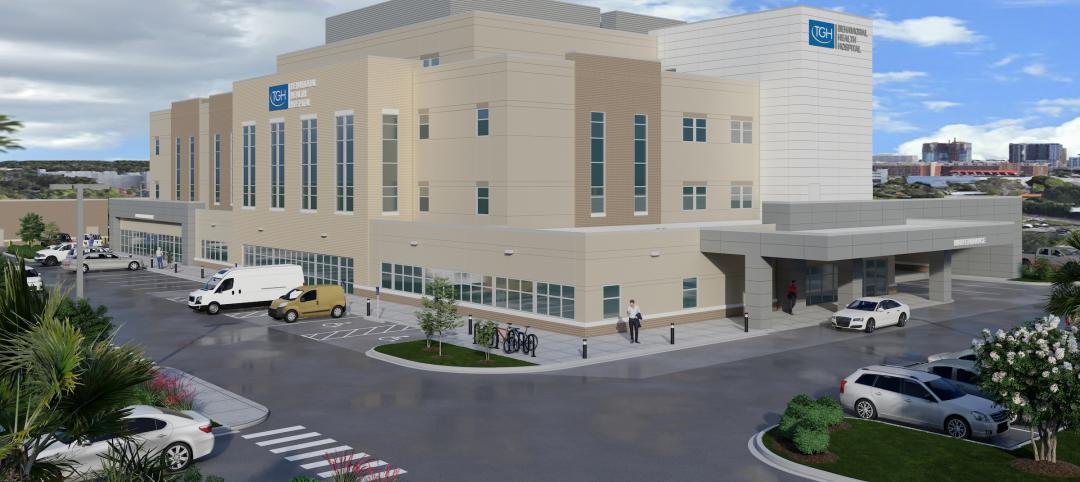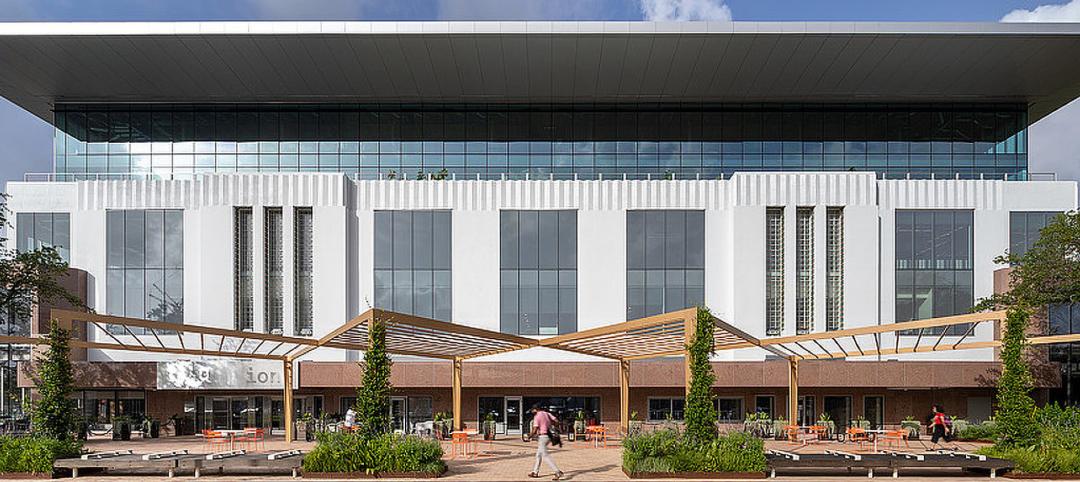Even with the myriad of obstacles preventing a full scale recovery for the overall U.S. economy, the design and construction industry appears to have reasons to be at least modestly optimistic in the coming months and into next year.
A sharp spike in demand for industrial facilities so far this year, along with sustained demand for hotels and retail projects factors into what projects to be a 4.4% rise in spending this year for nonresidential construction projects – up from a projection of a 2.1% increase in the January Consensus Forecast.
The American Institute of Architects (AIA) semi-annual Consensus Construction Forecast, a survey of the nation’s leading construction forecasters, also projects a 6.2% increase of spending in 2013.
“With companies looking to bring back manufacturing jobs from overseas, there has been a sharp rise in demand for industrial facilities, which is leading to an upward revision in projections for future construction spending,” said AIA Chief Economist, Kermit Baker, PhD, Hon. AIA. “Continued budget shortfalls at the state and local level, along with a depressed municipal bond market are holding the institutional market back from seeing similar upticks in spending.”
|
Market Segment Consensus Growth Forecasts |
2012 |
2013 |
|
Overall nonresidential |
4.4% |
6.20% |
|
Commercial / industrial |
5.7% |
10.20% |
|
Industrial |
12.9% |
8.10% |
|
Hotels |
9.5% |
18.20% |
|
Retail |
6.2% |
9.00% |
|
Office buildings |
4.7% |
8.70% |
|
Institutional |
0.7% |
3.00% |
|
Healthcare facilities |
4.0% |
7.50% |
|
Education |
0.3% |
1.10% |
|
Amusement / recreation |
0.1% |
2.30% |
|
Public safety |
0.0% |
0.10% |
|
Religious |
-5.0% |
3.00% |
Remarking on what risks exist that could undermine these projections, Baker added, “Federal tax and spending changes – the so-called fiscal cliff – that may come into play in early 2013 could upset the economic applecart and prove detrimental to recovery possibilities. We will likely have a better sense after the presidential election what will happen with regards to the Bush-era tax cuts, Social Security payroll tax, extended unemployment, and deficit reduction plans that will have a ripple effect that will extend to the construction industry.” +
Related Stories
Engineers | Sep 15, 2023
NIST investigation of Champlain Towers South collapse indicates no sinkhole
Investigators from the National Institute of Standards and Technology (NIST) say they have found no evidence of underground voids on the site of the Champlain Towers South collapse, according to a new NIST report. The team of investigators have studied the site’s subsurface conditions to determine if sinkholes or excessive settling of the pile foundations might have caused the collapse.
Office Buildings | Sep 14, 2023
New York office revamp by Kohn Pedersen Fox features new façade raising occupant comfort, reducing energy use
The modernization of a mid-century Midtown Manhattan office tower features a new façade intended to improve occupant comfort and reduce energy consumption. The building, at 666 Fifth Avenue, was originally designed by Carson & Lundin. First opened in November 1957 when it was considered cutting-edge, the original façade of the 500-foot-tall modernist skyscraper was highly inefficient by today’s energy efficiency standards.
Healthcare Facilities | Sep 13, 2023
Florida’s first freestanding academic medical behavioral health hospital breaks ground in Tampa Bay
Construction kicked off recently on TGH Behavioral Health Hospital, Florida’s first freestanding academic medical behavioral health hospital. The joint venture partnership between Tampa General (a 1,040-bed facility) and Lifepoint Behavioral Health will provide a full range of inpatient and outpatient care in specialized units for pediatrics, adolescents, adults, and geriatrics, and fills a glaring medical need in the area.
Adaptive Reuse | Sep 13, 2023
Houston's first innovation district is established using adaptive reuse
Gensler's Vince Flickinger shares the firm's adaptive reuse of a Houston, Texas, department store-turned innovation hub.
Giants 400 | Sep 12, 2023
Top 75 Retail Sector Engineering and Engineering Architecture (EA) Firms for 2023
Kimley-Horn, Henderson Engineers, Jacobs, and EXP head BD+C's ranking of the nation's largest retail building engineering and engineering/architecture (EA) firms for 2023, as reported in the 2023 Giants 400 Report. Note: This ranking factors revenue for all retail buildings work, including big box stores, cineplexes, entertainment centers, malls, restaurants, strip centers, and theme parks.
Giants 400 | Sep 11, 2023
Top 140 Retail Sector Architecture and Architecture Engineering (AE) Firms for 2023
Gensler, Arcadis, Core States Group, WD Partners, and NORR top BD+C's ranking of the nation's largest retail sector architecture and architecture engineering (AE) firms for 2023, as reported in the 2023 Giants 400 Report. Note: This ranking factors revenue for all retail buildings work, including big box stores, cineplexes, entertainment centers, malls, restaurants, strip centers, and theme parks.
Resiliency | Sep 11, 2023
FEMA names first communities for targeted assistance on hazards resilience
FEMA recently unveiled the initial designation of 483 census tracts that will be eligible for increased federal support to boost resilience to natural hazards and extreme weather. The action was the result of bipartisan legislation, the Community Disaster Resilience Zones Act of 2022. The law aims to help localities most at risk from the impacts of climate change to build resilience to natural hazards.
MFPRO+ Research | Sep 11, 2023
Conversions of multifamily dwellings to ‘mansions’ leading to dwindling affordable stock
Small multifamily homes have historically provided inexpensive housing for renters and buyers, but developers have converted many of them in recent decades into larger, single-family units. This has worsened the affordable housing crisis, say researchers.
Engineers | Sep 8, 2023
Secrets of a structural engineer
Walter P Moore's Scott Martin, PE, LEED AP, DBIA, offers tips and takeaways for young—and veteran—structural engineers in the AEC industry.
Healthcare Facilities | Sep 8, 2023
Modern healthcare interiors: Healing and care from the outside in
CO Architects shares design tips for healthcare interiors, from front desk to patient rooms.

















